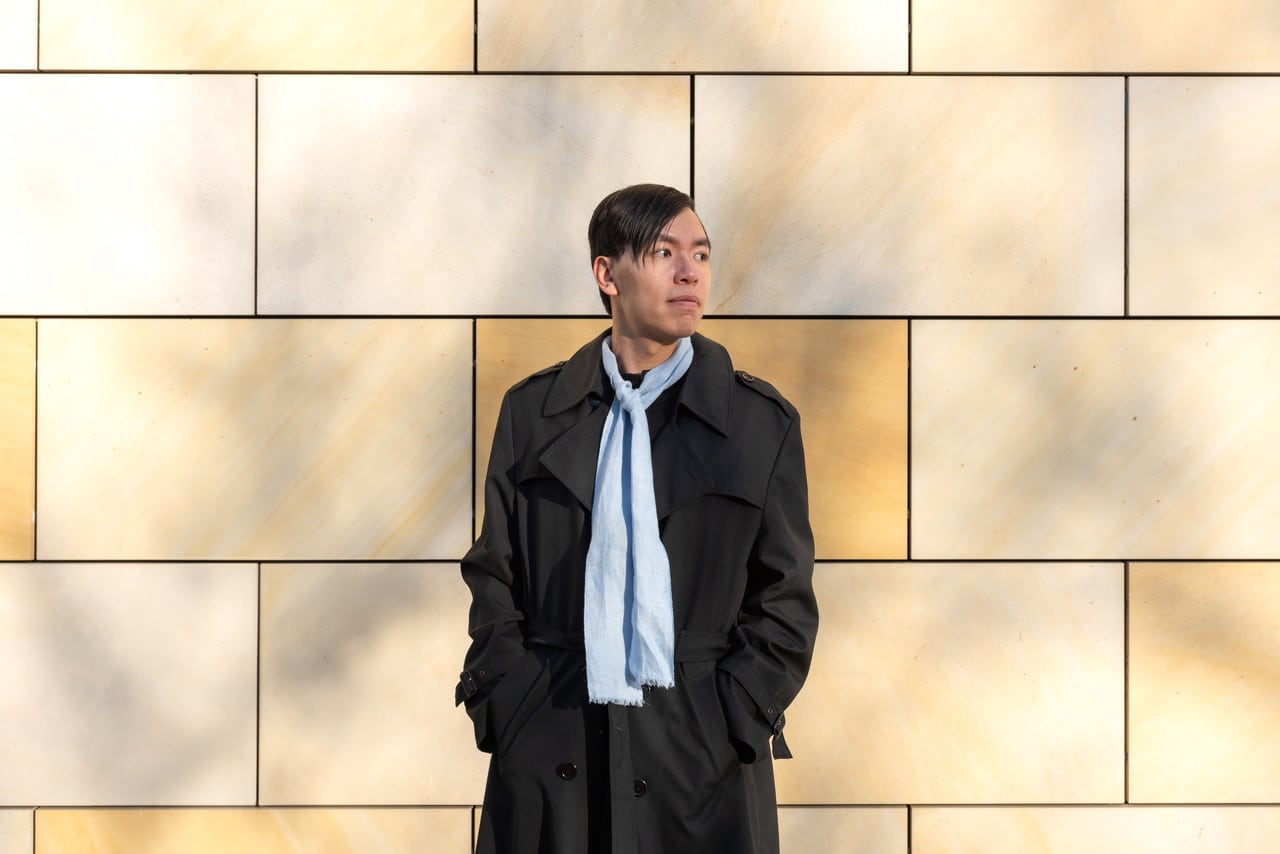Publisert 15.05.2025

Tze Yeung Ho. Photo: Robert Schittko
Tze Yeung Ho (born in 1992) is a Norwegian-Finnish composer based in Helsinki. Tze Yeung’s music is created at the crossroads of understanding, reflecting his multilingual upbringing. Working with Scandinavian, Finno-Ugric and Chinese poetry and prose, his music treads on the fragile landscapes of (mis)communication through (un)spoken words. Close collaboration with living writers, storytellers and word-based artists is integral to his practice. His creations usually result in some form of music theatre.
The prestigious composer was among the featured artists of Venice Biennale in 2024, invited by Moderna Museet. Tze Yeung is the first prize recipient of the 14th composition competition of Festival International de Musiques Sacrées (CH), Evivakören’s and Exaudio’s choral composition competition (FI) and Land’s End Ensemble’s 17th annual composition competition (CA). His collaboration with writer Linda Gabrielsen, hvorfor pusen? received the second prize of Shanghai New Music Week’s Chamber Opera Composition Competition. He is a finalist for the pan-European composition competition DYCE in 2022.
In March this year, Tze Yeung Ho´s new work Nara Opera premiered in Bergen at the Borealis festival. Nara is a brand new chamber opera that explores power and ambiguity through the complex story of the Dowager Empress Cixi – hailed as both a modernist and a tyrant. We had the pleasure of sitting down with the composer to chat about his new piece, his practice, and his experiences working internationally.
“The aspect I was most looking forward to was the language. The opera is in Norwegian, but there are also moments of Cantonese and Mandarin. The idea of different languages meeting in a music theatre space is very unconventional, and I’m extremely excited about it because it reflects my personal identity.”